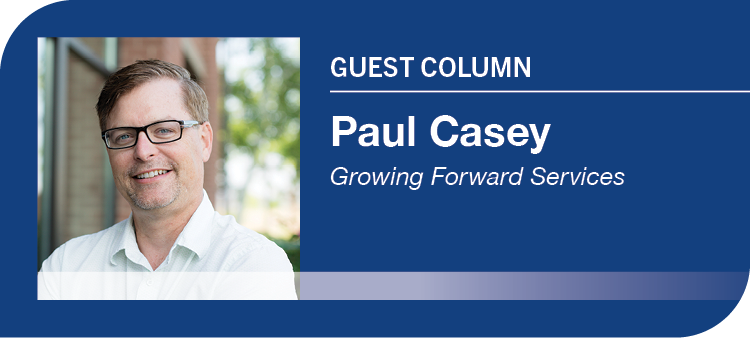
Home » Professional communication is an art that needs practicing
Professional communication is an art that needs practicing

June 13, 2023
Stephen Covey, author of “The 7 Habits of Highly Effective People,” wrote, “Most people don’t listen with the intent to understand; they listen with the intent to reply.”
Professionals need to be superior at listening, sharing and collaborating to master the art of effective communication.
When ideal communication doesn’t happen, a host of problems arise. Commitment and accountability begin to break down. Small issues fester and become bigger than necessary. Intentions get misunderstood, causing frustration and confusion. Your vision and goals get off track and derail projects and teams.
Listening is the foundation to effective professional communication. In fact, a good rule of thumb is the 80-20 rule: Listen to 80% of each conversation and talk for 20%. The means of using employee or customer feedback to improve company processes or products and services is called a feedback loop. This allows your employees to share their questions, suggestions, concerns and accomplishments with you. See my column in the May edition for suggestions on how to improve listening skills by paying attention, keeping an open mind for new ideas, reflecting back key points, asking clarifying questions and summarizing.
While one side of effective communication is listening, the other side is about sharing. What do employees want to hear from you? The company’s top goals and objectives. Too many priorities mean no priorities. Employees need to know where the ship is headed.
They want to know what success looks like so they can produce more of it. More specifically, what is a win for them in their role? When the vision of success is crystal clear, it keeps them accountable to a high standard and gives them consistent expectations.
Recognition of jobs well done is also important as appreciation for good work is fuel in the tanks for a long journey with your team.
Real-time information that is critical to job success today. Is inventory arriving? Is there an upcoming inspection to prepare for? When are performance reviews? Is the parking lot getting re-paved this week? Are schedule changes coming up?
There should be no surprises, especially about changes on the horizon.
For communication to be effective, it is essential to gather your team together, at all levels. When teams are inclusive, you get true collaboration and the best answers to problems and opportunities as they arise.
When decisions get made collaboratively, everyone on the team must understand how and when certain details will be communicated. Team collaboration involves individuals pooling their skills, knowledge and resources to work toward a common goal.
- It fosters diverse perspectives, leading to comprehensive solutions and breakthrough innovations.
- Collaboration encourages open communication, active participation and brainstorming.
- It promotes shared responsibility, trust and cooperation among team members.
- Efficient division of labor optimizes productivity and ensures an even distribution of workload.
- Collaboration provides opportunities for learning, growth and the acquisition of new skills.
- It empowers teams to overcome challenges, make better decisions and drive innovation.
Effective leaders excel at active listening, sharing information and collaboration. Work to master the key skills of professional communication can be accomplished by establishing feedback loops, aiming for a ratio of 80% listening to 20% talking, collaborating with your team on decisions and clearly stating how and when details get shared.
This will help build your team’s confidence to accomplish clear goals and increase your effectiveness as a leader.
Paul D. Casey lives in the Tri-Cities and is the owner of Growing Forward Services.
Leadership Development Opinion
KEYWORDS june 2023





